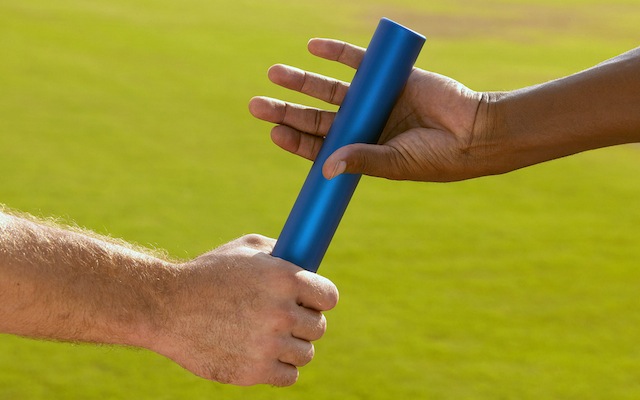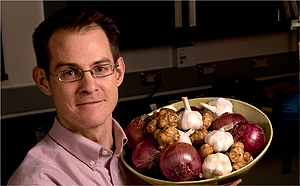Here are the numbers from my July 2012 Glucose Tolerance Test. In this test, I passed and have, according to medical measurements, normal blood sugars throughout the test. In 2005, I failed two glucose tolerance tests. That earned me the diagnosis of Diabetic. And on the 2nd test in 2005, I paid extra to have my insulin levels checked as well. In 2005, my insulin never went above 3 units. That indicated to my endocrinologist that my pancreas was failing and at some point, I would need to be on insulin shots and/or medication or both. I have never taken diabetes medications or insulin shots. But after November 2005, I started with much more attention to eat a low carb diet, and I’ve also done acupuncture. And since then, my insulin levels have been higher and I have passed all the glucose tolerance tests I’ve taken. It’s a nasty test, hard on a person’s body, but I do it because it creates a comparison about how I’m doing. There are always health things for a person to work on, and that includes me. But regarding my glucose tolerance tests, it looks like I’m doing better. It’s a reminder to me to keep eating very low carb and high fat. – Shelley
| TIME | Blood Sugar |
| Fasting | 73 |
| 1-Hour | 148 |
| 2-Hour | 136 |
| TIME | Insulin |
| Fasting | 2.3 |
| 1-Hour | 23.2 |
| 2-Hour | 29 |






Hi, Andre,
Looks like you’re doing a lot of good thinking on topics like this. The reason I don’t go back to eating ice cream and desserts, etc, is that I figure it’d put me right back with the problem that I had originally. I enjoy the way I eat without being teased by foods like ice cream that get me out of whack. And also, some “excursions” into casual eating do make me uneasy that my system is one that I need to be kind to, rather than stress. I figure I’ve found a way to eat that works for me, and I’ll stick to it.
Hi Shelley,
Thanks for the detailed reply to my questions. It is certainly informative. If I understand correctly, you are saying that even though you passed your last OGTT which involves consuming 75g of glucose, your blood glucose will still spike if you consume a moderate amount of ice cream or cake.
This is certainly surprising to me. I would have expected given your OGTT results that you could now do well consuming moderate carbs. Then again, everyone reacts differently to various foods and your results are what they are. It shows the need to continue monitoring one’s BG numbers even when one has good control. I certainly agree that the inconveniences associated with eating LCHF is a small price to pay for continued good health.
Once again, thank you for sharing. By providing this data, you provide very useful information to people like myself who are relatively new to diabetes.
All the best,
Andre
Hi, Andre,
Good questions you’ve asked here. First, I think my diet is pretty good for staying in ketosis, though I’ll bet don’t hit the mark all the time. When I’ve done urine tests using ketostixs (that’s one of the easiest and least expensive ways to check for ketosis, and I’ve done those tests periodically over the years) then generally I’ve had pretty high ketones in my urine. Note that some people who are very solidly in ketosis show very little evidence of ketones with ketostix tests because they’re in a great balance for how much ketone their body uses and don’t have much to excrete. So there’s a bit of judgement call regarding urine tests of ketosis. In their book on The Art and Science of Low Carb, Steve Phinney and Jeff Volek describe some other potential ways of figuring out if you’re in . . . not so much ketosis, but . . . nutritional balance for your body – in that some people, it looks like, turn carbs into fat very quickly and others turn carbs into energy even when they’re eating a high amount of carbs. The kind of test they’re referring to is not commercially available but is certainly food for thought.
You are correct, that an Oral Glucose Tolerance Test, by some authorities, is only conclusive if you’ve been eating carbs for awhile before taking it. I tried once to increase my carbs according to that theory, and saw my blood sugars shoot up into the 170s with just half or a quarter of a sweet potato, and the 2nd day I did that, my blood sugars went even higher, so I don’t want to risk stressing my body more, in order to do that kind of test. I mean, the Oral Glucose Tolerance Test is pretty brutal all by itself. But more than that, when I’ve asked my endocrinologist what he thinks about “preparing” for an oral glucose tolerance test by changing to a more carb filled diet, he has told me it’s not really necessary. I think one thing that’s assisted his perspective is that I’ve also done insulin levels throughout the test, and those offer another layer of information.
About consuming more carbs, you know, it goes up and down. It’s been years since I ate anything more than a spoonful of cake or ice cream on a special occasion, and when I’ve done that and checked blood sugars, I’ve been humbled by seeing how my blood sugars still can go up and not come down in the way a regular person’s do. I’ve cut out some things I used to eat, such as Dick Bernstein’s idea of rye crackers. Never eat any anymore. I probably eat more red onions and tomatoes in salads than is always smart for someone trying to stay low carb. And more nuts, which actually have more carbs than I care to admit.
But overall, I’m pretty low carb and when I’ve tracked my eating, comfortably can be at 20 or 30 grams of carbs a day, though I’ll bet in my case I’m not below 50 usually.
Each person, it’s a very individual thing, is my guess, how much carb their body can tolerate. Also, I find that eating a big amount of protein actually pushes my glucose levels up higher than about anything by the next morning. So protein consumption plays a big part, too.
As for consuming more carbs, for the most part, each time I take a blood sugar reading, it’s a reminder that this is a long journey that I’d like to have, where I have as much as possible in my choices, in my favor, and that means continuing this lifestyle, if my bet. With each year, there’s more wear and tear on my body. With each year, there’s the inevitable increase in glycosylation and insulin resistance that’s simply part of the natural aging process. But with each year, I also have more experience and wisdom, and the humility of habits bit by bit. Do I want to eat ice cream and bread, or do I want to be able to hike and play tennis and not take insulin? Given those kinds of trade-offs, I look at not eating “regular carbs” as a small price to pay, in order to have more chance at the things I like to do.
Low carb, high fat, adequate protein is a healthy and delicious way to eat; people happily join us for dinner at our house, and if I go out to a restaurant, the vast majority can provide me with something to eat that works, and when they bring the bread and butter, what the heck – I leave the bread and eat the butter!
One other observation for me personally – I’ve been doing a Crossfit Class for two years now, and it intrigues me that regular, pretty intense exercise seems to be helping me as well. My blood sugars go pretty high if it’s an intense exercise class, but longterm there seems to be benefit and my hemoglobin A1cs are looking pretty darned good. They’ve been in the 5s and the last one at a doctor’s office was under 5. It was so good, I’m scared to get another one!
Things could always go south for many reasons. But so far, so good, and I am happy to be “condemned” by circumstances, to a life of healthy eating.
Hi Shelley. I am very happy to have found your website. Hope is a powerful motivator and this is what experiments such this bring. However, I have a few questions if you have time.
First, do you think your diet is sufficiently LC/HF to keep you in nutritional ketosis? Are you using any devices to establish your level of ketosis?
Second, when you did the Oral Glucose Tolerance Tests, did you increase your carbs significantly for three or four days prior to the test? Instructions say that people on a LC/HF diet must do this to get valid results.
Third, would you say that your LC/HF diet has changed over the years? As time goes on and your tolerance for carbs improves, are you consuming more carbs or maintaining a low carb intake?
Thanks again for your effort in helping others with diabetes.
Andre
Shelley – Every patient should be staged this way! Checking insulin levels does add information, but tends to be costly. I also see that you have measured c-peptides during the OGT, interesting! – Dr Jeff
Congratulations on doing what medical science considers impossible!
I have long suspected that what they consider the “inevitable course of the disease” is actually, only, what is to be expected when it is treated in the ignorant ways so many of them use.
I’ve been low carb/high fat for eight fabulous years, and thus I hope to avoid diabetes, despite my family history.
Shelley, much congratulations. Although a lot of good work in basic research of T2DM is done, there is little to nothing provided to guide one in the course you have successfully taken — reversing the pathogenesis. Of course, almost all of the basic research is motivated by drug development.
Examples such as yours are therefore invaluable for those of us attempting to do the same. And it requires patience and confidence because some beta-cell regeneration is always required fpr normalization of glucose regulation, it appears, and this is slow in our species (a requirement for faster regeneration not having been evolved for). I too had concluded that LCHF should be best, and it’s encouraging to get reinforcement of that notion.
Hi, Ken – I really appreciate your encouragement and thoughts. Like you, I wonder what can help beta cells and well-orchestrated insulin secretion regenerate more predictably, and for more people. In my case, I wonder if many of my beta cells in 2005 were like the hero in the movie, The Princess Bride. At one point in the movie, everyone is sad because it sure looks like the hero is dead. But a wise old healer takes a closer look and announces that the hero is really only “almost dead,” and thus, possible to revive. Maybe lots of my beta cells were almost dead in 2005! Maybe some of them did die. Maybe many of them. But there’s a chance that by restricting carbs or the acupuncture I’ve done or who knows what, some of the ones in a “dead faint” in 2005, but not dead yet, have come back on line. And maybe the normal, but very slow process of the body creating new beta cells has not been thwarted by killing the new ones off early, by overstressing them with extra carbs. So, slowly, slowly . . . I believe I still need to be attentive – and keep carbs low. Fortunately, it’s an approach that I’m confident to follow, thanks to courageous and brilliant health practitioners and researchers, people who have been willing take seriously the many reasons to restrict carbs. These folks have often been risking their careers and their reputations, in order to figure out the science of this kind of approach. People like Ron Rosedale, Steve Phinney, Eric Westman, Jeff Volek, Richard Feinman, Dick Bernstein and others. For me, who knows what tomorrow will bring. But whatever it is, I certainly agree with you that resting a body that’s stressed from dealing with carbs, by NOT giving it carbs, is pretty logical! — Shelley
Yeah! Way to go. It is so inspiring to see people take care of their health. Your website has helped me a lot, thank you so much for the information you have provided. You an an asset to the community, not just the low carbohydrate, moderate protein, high fat community. 🙂
Well, Joshua, that’s so sweet of you to say! Sweet in the healthy way, if you know what I mean – Shelley